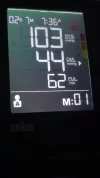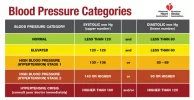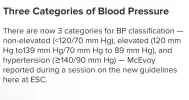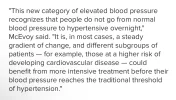MyNameIsJeff
Member
Your citation from the AJM is from the year 1973. You really think our understanding of medicine has not improved in the last 50 years?According to this statement In the American Journal of Medicine
"On the other hand, the blood pressures optimal for longevity are those below 110 mm Hg systolic and 70 mm Hg diastolic.
Do you understand what all-cause mortality means? It's the opposite of longevity, and anyone with a DBP < 60 is statistically at a higher risk of dying prematurely from any cause.If you will notice i stated "longevity" not heart disease heart disease is just one factor in longevity.
You might feel fine and be content to ignore the issue, up to you. But don't spread misinformation just so you can pretend to yourself that everything is hunky-dory.






